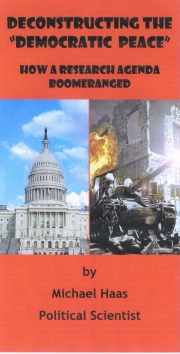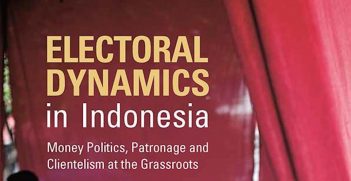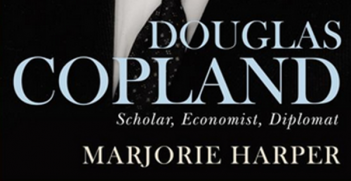Deconstructing the “Democratic peace”: How a Research Agenda Boomeranged

At the International Studies Association Convention in Toronto in March, Michael Haas chaired a roundtable where he presented his newest book Deconstructing the “Democratic Peace”: How a Research Agenda Boomeranged. In his book, Haas pursues the goal of deconstructing the democratic peace which, in Haas’ view, is nothing more than a social construct created by ideologically-driven researchers who believe in the superiority of democracy and who are unwilling to listen to unwelcome criticism. Haas in particular accuses these researchers of a lack of a normative agenda, which would have shown at least some awareness of the impact their theories have had on Western policymakers who, with the democratic peace in mind, have paradoxically gone to war to export democracy and bring world peace closer.
Haas starts his deconstruction by a brief discussion of the bulk of the research into the empirical phenomenon of the democratic peace after which he sketches an overview of the problems he sees: democratic peace research lacks clear, comprehensive concepts of the dependent and independent variables, has an extreme focus on quantitative work and problems of inference which subsequently have led to an exclusion of cases that might have disproven the democratic peace thesis. Haas goes then on to assess the abundant theories to explain the democratic peace and concludes that most of these explanations are ad hoc and unrelated to existing paradigms or other theories in political science. He continues with a sketch of how politicians have shaped their foreign policies on democratic peace research and how unaware scholars have let this happen. Haas ends his book with a list of about 300 deviant cases that are ignored by democratic peace researchers.
For anyone who acknowledges that democratic peace research indeed suffers from conceptual and empirical problems, this book is an interesting read. Haas offers a thorough overview of the state of the art of research into the democratic peace thesis in its broadest sense. However, Haas’s criticism is unfortunately underdeveloped and therefore hard to understand for those readers who are not up to speed with the democratic peace literature. Although most of the points Haas sketches are valid (democratic peace research does suffer from conceptual problems and indeed much of the empirical work is ad hoc and theoretically not always very strong), he rushes so fast through his remarks without substantiating them systematically and thoroughly that his remarks do not rise above being opinion rather than a solid, systematic and scientific critique that other researchers can build on. His largest contribution, the long list of deviant cases, is offered in a table at the end of the book without a clear explanation how these cases relate to his criticism.
Haas is a distinguished scholar whose words have some standalone power. However, to have an impact within the contested and polarised research program of the democratic peace, more than opinion is needed. Haas has missed an opportunity here because he has neglected to scientifically explain what is wrong with the research into the democratic peace thesis. And that is precisely what the scholars his criticism is targeted at need to be convinced of.
Michael Haas, Deconstructing the “Democratic peace”: How a Research Agenda Boomeranged, Publishing House for Scholars, 2014
Reviewed by Femke Avtalyon-Bakker MPhil, PhD candidate at Leiden University, Institute of Political Science, The Netherlands





